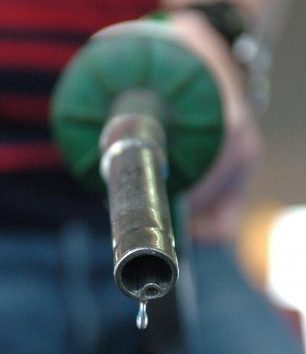14 January 2015, Lagos – As oil producing countries continue to express worries over their dwindling revenue and increasing negative macroeconomic outlook, an expert has stressed the need for the affected countries to stress-test their banking system.
This, according to the expert, would enable them determine what would happen “to your banks if, all of a sudden, foreign currency became scarce?”
The Senior Director of the World Bank’s Global Practice for Macroeconomics and Fiscal Management, Marcelo Giugale made the suggestion in a report titled: “Cheap Oil and the Poor,” made available to THISDAY.
According to him, such an exercise would enable Nigeria and other oil producing countries to find out if there are loans concentrated “on a few construction or trading companies that could go belly up as the oil boom comes to an end.”
The report also indicated that oil exporters such as Nigeria, Russia, and Venezuela, would lose a great deal as a result of the falling oil price, while oil importers — like China, India, and Japan — will gain a bit.
It noted that after four years of hovering at about $100 per barrel, the price of oil has collapsed to about $50 per barrel and is expected stay at $70 or less this year.
This, according to Giugale has sent economists rushing to assess what cheap oil means for the global economy.
Simulations by the World Bank’s Global Practice for Macroeconomic and Fiscal Management, according to him suggested that all things being equal, the global economy would grow a tenth of one per cent faster if oil prices in 2015 stay a third below their average level of 2014.
He insisted that “rich countries will benefit more than developing ones — think of less expensive energy helping with Europe’s recovery,” adding that growth in oil-rich regions like the Middle East, Central Asia, and West Africa may decline rather sharply — by two or more percentage points.
According to him, among oil exporters the impact of the falling oil prices would vary a lot because the countries are not all equally prepared to cope with the situation.
Not all of them used well the “good times” of $100-plus a barrel, he said.
“The effect of cheaper oil on any one country — and on its people — depends not just on whether it sells petroleum or not but, if it does, on whether it has created the external and fiscal buffers to cushion a plunge in prices.
“The typical buffers are little or no foreign debt, large reserves of foreign currency, balanced fiscal budgets, sovereign wealth funds, and flexible public expenditures — while not perfect, Colombia, Malaysia, and Norway are examples of that,” he added.
He stressed that macroeconomic buffers help to protect the poor, saying that without buffers, an abrupt loss of export earnings means slower or negative growth, higher inflation, and less government revenue.
“That is, fewer jobs, pricier food, and less social assistance. In other words, for unprepared oil-exporting countries, cheaper oil means more poverty.
“At present, there are some 700 million people in such countries — 80 million of whom already live on $1.25 a day or less,” he argued.
– This Day



